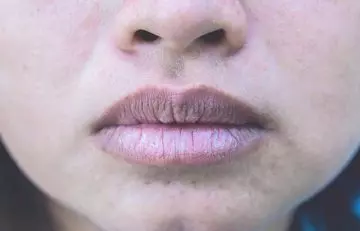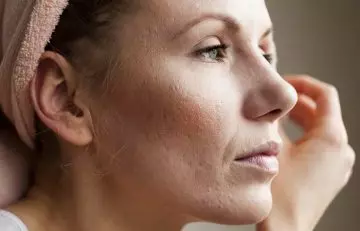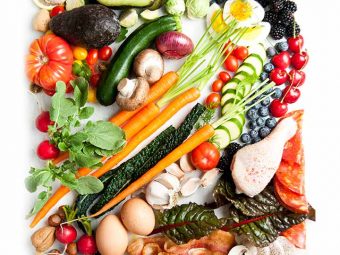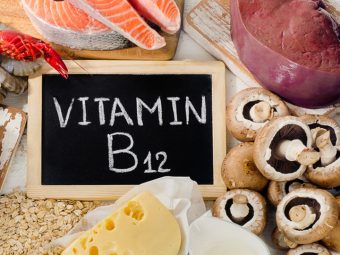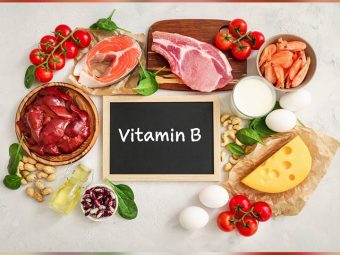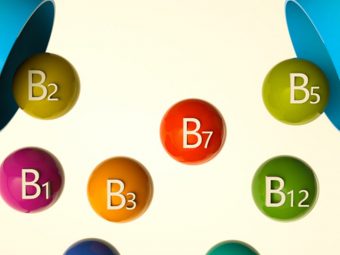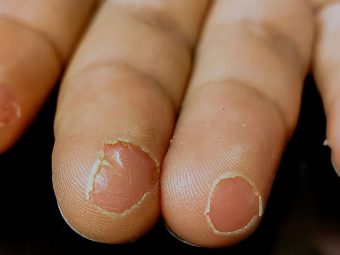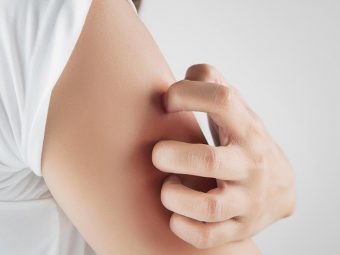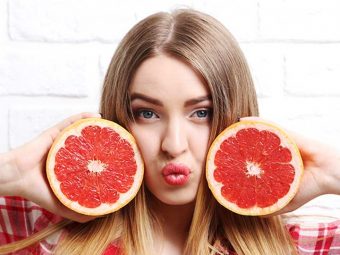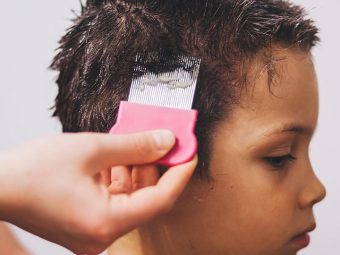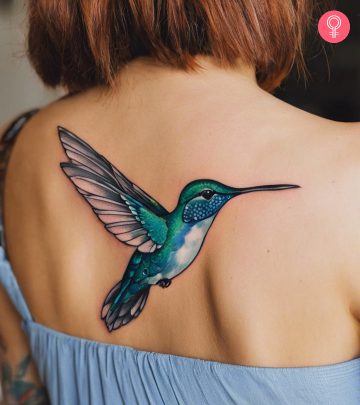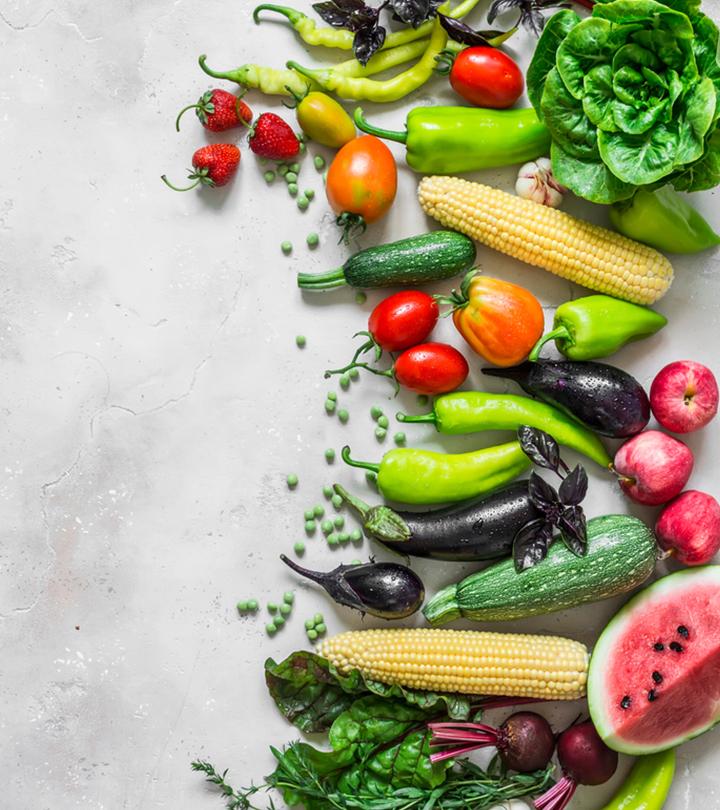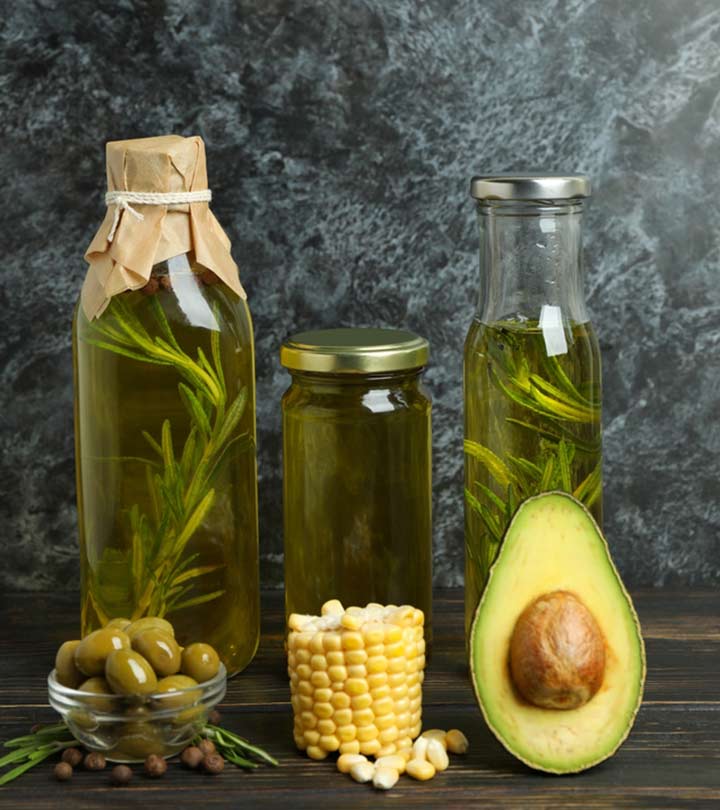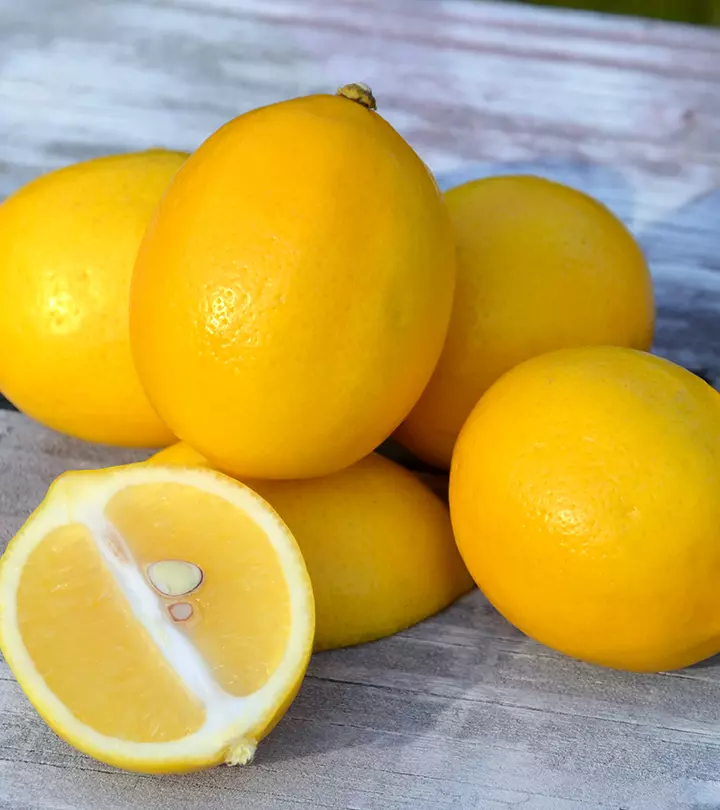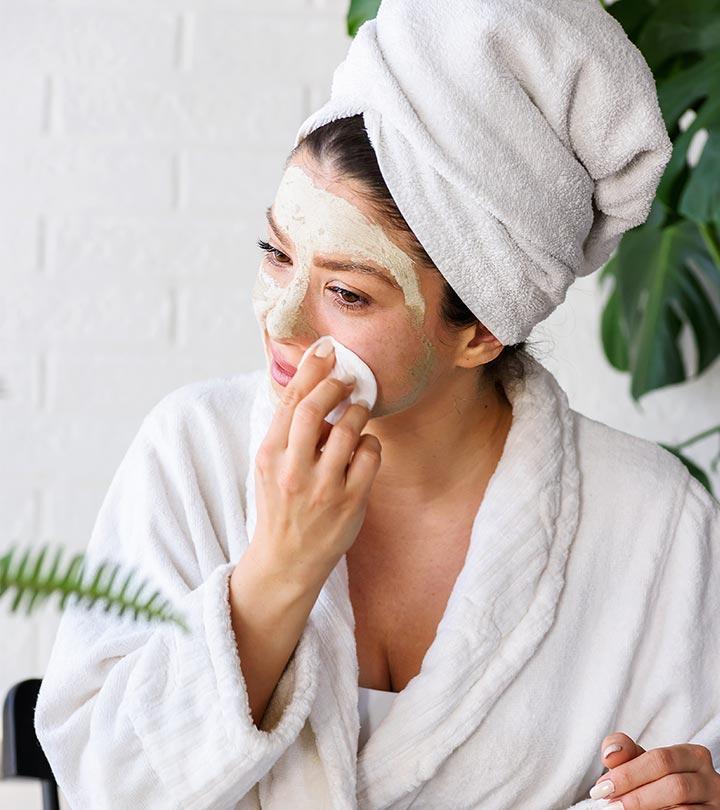6 Symptoms Of Vitamin Deficiency That Show On Your Face

Image: Shutterstock
In order to live a healthy lifestyle, it is important to consume a balanced diet. Aside from eating the required portions of carbohydrates, proteins, and fats, it is very important to meet your daily recommended amount of vitamins. Vitamins help boost our immunity and protect us from bacteria and viruses. People usually tend to show signs of vitamin deficiencies as we transition from one season to another. Let’s take a look at 6 symptoms that suggest that you may be suffering from a vitamin deficiency.
1. Pale Or Dry Skin
We’ve all noticed that some people tend to look paler during the winter season. These people may not be pale due to the lack of sun but may be suffering from a vitamin B12 deficiency. If you suffer from this vitamin deficiency, you will notice that you will start feeling tired really quick and may even suffer from depression (1). In order to improve your intake of vitamin B12, you should consume more seafood and meat.
People’s skin tends to grow dryer during the winter season. However, if you have dry skin all year round, then it may be a sign that you may have a vitamin A and C deficiency. Vitamin A protects our skin from exposure to the UV radiation from the sun, whereas our bodies use vitamin C in the synthesis of collagen (2). Collagen is used by our bodies in the generation of new skin, hair, and nails. In order to improve your intake of these vitamins, you should consume the following foods: plums, oranges, peppers, kale, cabbage, romaine lettuce, carrots, apricots, spinach, and grapefruit.
2. Dry Hair
A lack of biotin, also known as vitamin B7, may lead you to have dry hair and dandruff. The level of biotin tends to fall in our body especially after we have begun a course of antibiotics. In order to maintain the required level of biotin in your body, you must consume more of meat, seafood, fruits, vegetables, mushrooms, legumes, and eggs.
Dry hair is usually accompanied by dandruff. However, if you have dandruff but do not have dry hair, then this may be a sign for caution. Dandruff can be interpreted as a sign of vitamin B2 and B6 deficiencies (3). In order to help get rid of dandruff, you should incorporate the following foods in your diet: beans, fish, dark chocolate, bran, nuts, eggs, and carrots.
3. Swollen Eyes
Extreme swelling in the eyes is usually caused due to allergic reactions. However, if your eyes tend to swell as you wake up in the morning, then it may be a sign that you may have a lack of iodine in your body. In order to increase the level of iodine in your body, you should add iodized salt to your food. Alternatively, you can obtain iodine through dairy products, fish, and bread.
If your eyes are sensitive to bright lights, it may be due to a lack of the vitamins A and B2 (4). You must consume the foods mentioned earlier to help increase the levels of these vitamins in your body. However, if the problem persists, it is best that you visit an eye specialist to have your eyes checked up.
4. Pale Lips
People who tend to contract a cold very often or have low blood pressure usually tend to have pale lips. These are all signs of a lack of iron or perhaps vitamin B12 in your diet. The best way to rapidly increase the level of iron in your body is to consume liver and red meats. You must make sure that you avoid dairy products or any other source of calcium in the meanwhile since calcium inhibits the absorption of iron by our bodies.
5. Bleeding Gums
A long time ago, sailors use to often suffer from bleeding gums or ‘scurvy’ – a problem caused due to a lack of vitamin C in one’s diet (5). In order to increase the level of vitamin C in your diet, you should consume citrus fruits such as oranges, lemons, and grapefruit as well as peppers such as red peppers.
6. Acne
Although acne is usually caused due to hormonal processes and accumulation of dirt, germs, and dead skin cells in your skin pores, sometimes it may be due to a vitamin deficiency. Low levels of vitamin A and E in your diet can cause acne as well. In order to increase the levels of vitamin E in your body, you should consume: spinach, olive oil, seeds, cauliflower, wheat germ as well as liver. Similarly, in order to increase the levels of vitamin A in your body, you should consume foods such as fish, eggs, legumes, and butter.
Your body may show signs of vitamin deficiencies that are often confused with other reasons such as environmental changes or hygiene. You must be well aware of the symptoms of these vitamin deficiencies and make the necessary changes in your diet in order to alleviate the symptoms.


